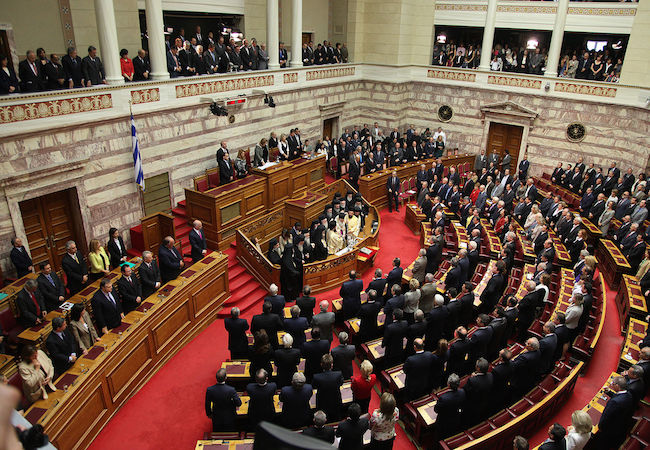
By Dimitra Karantzeni
Days after the last parliamentary elections, something is eventually moving in Greece. People are hesitant and restrained, do not want to get too excited. However, one can see that a humble smile, between hope and faith, is on faces of Greeks. For the first time in the post-dictatorship period, a leftist government took over the leadership of the country, insisting on its pre-election commitments to overthrow the corrupt political system and reverse the economic disaster.
During the pre-election campaign, voters were bombarded with terrifying messages concerning the day after Syriza’s victory, describing more or less a socio-economic chaos, with banks with no liquidity, a paralyzed public sector and markets out of stock. However, the overall propaganda of terror and intimidation of citizens by the predominant political parties not only failed to limit the social impact of SYRIZA’s actions, but it also seems that the will of determination of the new government somehow managed to positively affect the rest of Europe.
The negotiation process is still ongoing but what Syriza has achieved so far is that its well prepared anti-austerity plan today gives the impression not of just a grand-standing utopic program but of a specific project built on realistic bases.
What is of high importance though is that this political change in Greece has stimulated a great wave of active support from various European leftist political parties, helping Syriza to immediately avoid the risk of diplomatic isolation. Furthermore, for different reasons of geopolitical importance both the US and Russia have a very positive attitude towards the new Greek government, strengthening its negotiating power against EU lenders. On the one hand, a closer cooperation between the two orthodox countries would benefit the development of Greek energy sector, even set Greece as a major strategic player in the international negotiations field about energy and at the same time provide Putin with a valuable European ally. Besides, Greek refusal to approve an EU statement aiming to expand sanctions against Moscow is a first good step in that direction. On the other hand, Washington couldn’t but respond to this diplomatic game by supporting the end of austerity, recalling US bad fiscal experiences and expressing its concerns about EU, which is currently lacking a tangible plan for growth in Europe.
Another significant issue is that for the first time people gather on the streets neither to protest against strict measurements of the government nor to express their anger and indignation – remember the major Movement of ‘’Aganaktismenoi’’ meaning ‘’Indignants’’ . People today, are actively present because they need to vividly demonstrate their great support to the government’s efforts to tackle the so-called European ‘Goliath’ and honor their will. In fact, this unprecedented situation, where thousands of people gathered on the 5th of January in Athens, Thessalonica, Patra and Chania to support the anti-austerity government, goes far beyond national boundaries, as similar social demonstrations took place in various central squares of major European cities.
So, it is clear that Greece has lots of important allies right now coming from different points of the international political scene. Additionally, both public opinion and the Press, valuable motivating factors of socio-political pressure, recognize the seriousness of the effort and the need to put an end to this major humanitarian crisis, which concerns the whole of Europe and challenges the foundations of the EU project. The question is whether this tough stance of both the European Central Bank and the European Commission is the first step in a tough negotiation process or indicates that the decisions are already taken against Greek interests.
We’ll just have to wait and see as the following days will be certainly crucial. We can only hope that the smiles on people’s faces won’t freeze and hopes for a better, decent future won’t vanish into thin air…
Dimitra Karantzeni is the member of the editorial board of Modern Diplomacy online journal




